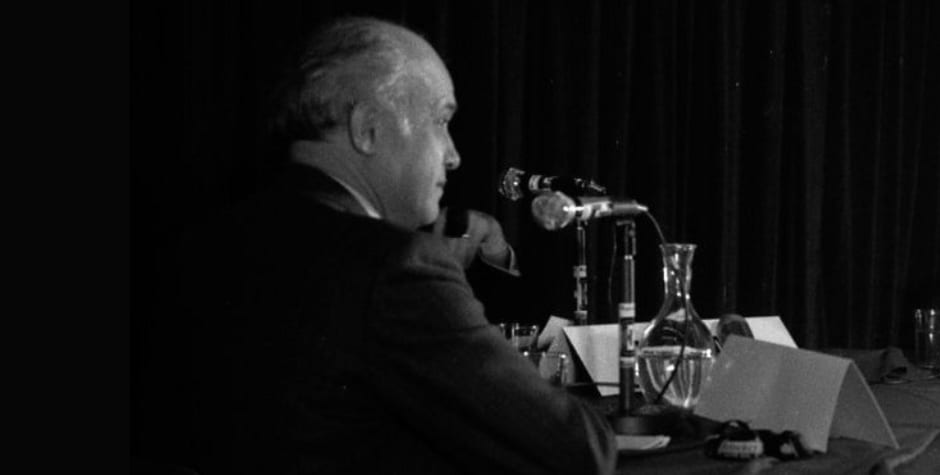

40 Years after the "Savary Bill": What Freedoms Remain for Catholic Education?
40 years after the "Savary bill"
On December 20, 1982, François Mitterrand's government presented proposals to abolish private, almost exclusively Catholic, educational establishments. Forty years after this aborted plan, Nicolas Bauer reports in Le Figaro on the current freedoms and constraints of these establishments.
In 1882, Jules Ferry secularized public education, making it free and compulsory. A century later, in 1982, French Education Minister Alain Savary presented the government's plan to unify the entire French education system. The aim was to integrate the private education sector into the national education system, notably through a revised school district map and a common pedagogical program. The Socialist government's concern was promoting equality between children.
Then-president François Mitterrand's platform also involved secularizing private schools, almost all Catholic at the time. Such a reform would have limited freedom of education. It would have also violated two United Nations treaties, ratified two years earlier by France, that protected the right of parents “to choose for their children schools, other than those established by the public authorities” and “to have the religious and moral education of their children provided in conformity with their own convictions.”[1]
"The existence of private schools ‘under contract’ is no longer called into question”
Despite the Socialist government’s attempts to negotiate and reach a compromise, a social movement opposed the Savary project head-on. Supported by the Catholic bishops, the movement culminated in June 1984 with two million French people marching in Paris. This “free school” movement left a lasting impact on the Left. A month later, Mitterrand announced the withdrawal of the Savary law. Since then, the existence of private education “under contract” with the State has never been questioned.
Instead, the teachings of Catholic establishments "under contract" have become quasi-secular in practice. As a result, left-wing critics now focus on social, rather than religious, issues. Questioned on the subject in 2017, Jean-Luc Mélenchon considered that the "real problem" was no longer "religious, Catholic, denominational teaching" inside private schools but rather a "situation of inequality" that exists between private and public schools. The current Minister of Education, Pap Ndiaye, recently called on Catholic schools to account for their social diversity.
The tension between denominational specificity and respect for conscience
Even so, a minority of establishments "under contract" are trying to restore their denominational specificity. The room for maneuvering within the law is limited. These establishments are required to both admit children of all convictions without distinction and "fully respect the freedom of conscience" of each pupil. In a pluralistic classroom, creating religious and moral education that also respects every conscience is a difficult balance to strike.
In 2014, a single anonymous testimony was all it took for the Gerson Catholic high school to be investigated by the Ministry of Education and have its public funding suspended. The testifying student considered that his conscience had been offended by a religious instruction during a course on bioethics. Although the investigation ultimately contradicted the student's accusations and vindicated the school, Catholic education has redoubled its caution in the wake of this affair. Today, "consciences" are very diverse and sometimes ultra-sensitive.
In other European countries, state-funded faith schools enjoy much greater autonomy. This is the case for faith schools in the UK as well as those in the Netherlands, whose Constitution provides extensive protection for private schools. In both countries, faith schools can ensure they share the same educational project with teachers and families, including its religious dimension. If there is a conflict with the freedom of conscience of a parent or pupil, this freedom is exercised by their choice to leave that establishment.
“Hors contrat": increased freedom now under attack
In France, such religious autonomy exists only in "hors contrat" establishments (private schools without a state contract), which receive no public funding. However, unlike "sous contrat" education (private schools with a state contract), the majority of the 2,500 "hors contrat" establishments are secular. Only 320 are Catholic. But the independence of "hors contrat" education allows these few Catholic schools to offer a fully religious education. They attract families disappointed by the de facto secularization of Catholic "sous contrat" education.
Since the start of Emmanuel Macron's first five-year term, the freedoms of "hors contrat" schools have been debated and attacked like no other. New legislation has been passed almost annually, including in 2021, with each law reinforcing respect for the principles of the Republic ("separatism" law). These laws have tightened control over "hors contrat" schools and made their closure easier. “Hors contrat" students are also subjected to humiliations, such as differential treatment for the baccalaureate exam.
Forty years after the Savary bill, it is above all the "hors contrat" establishments that embody the concept of a "free school." Its fight for development is no longer dramatic like the 1984 marches but instead discreet and daily.
________
[1] International Covenant on Economic, Social, and Cultural Rights, pt. III art. 13 ¶ 3; International Covenant on Civil and Political Rights, pt. III art. 18 ¶ 4.










